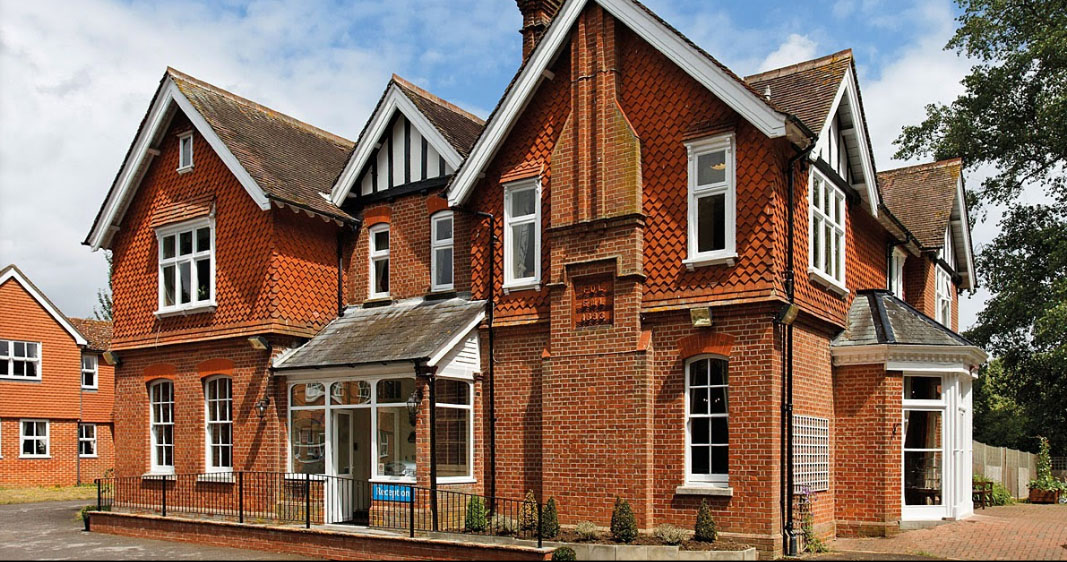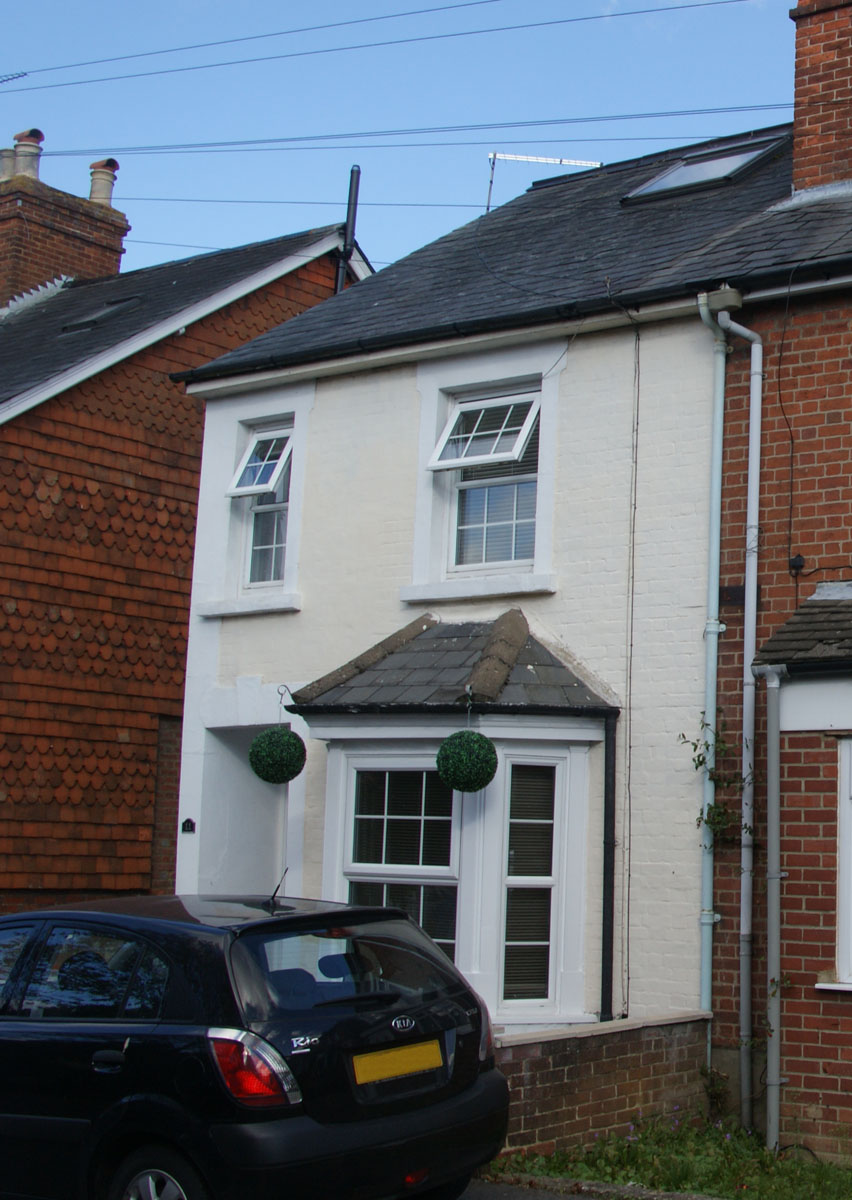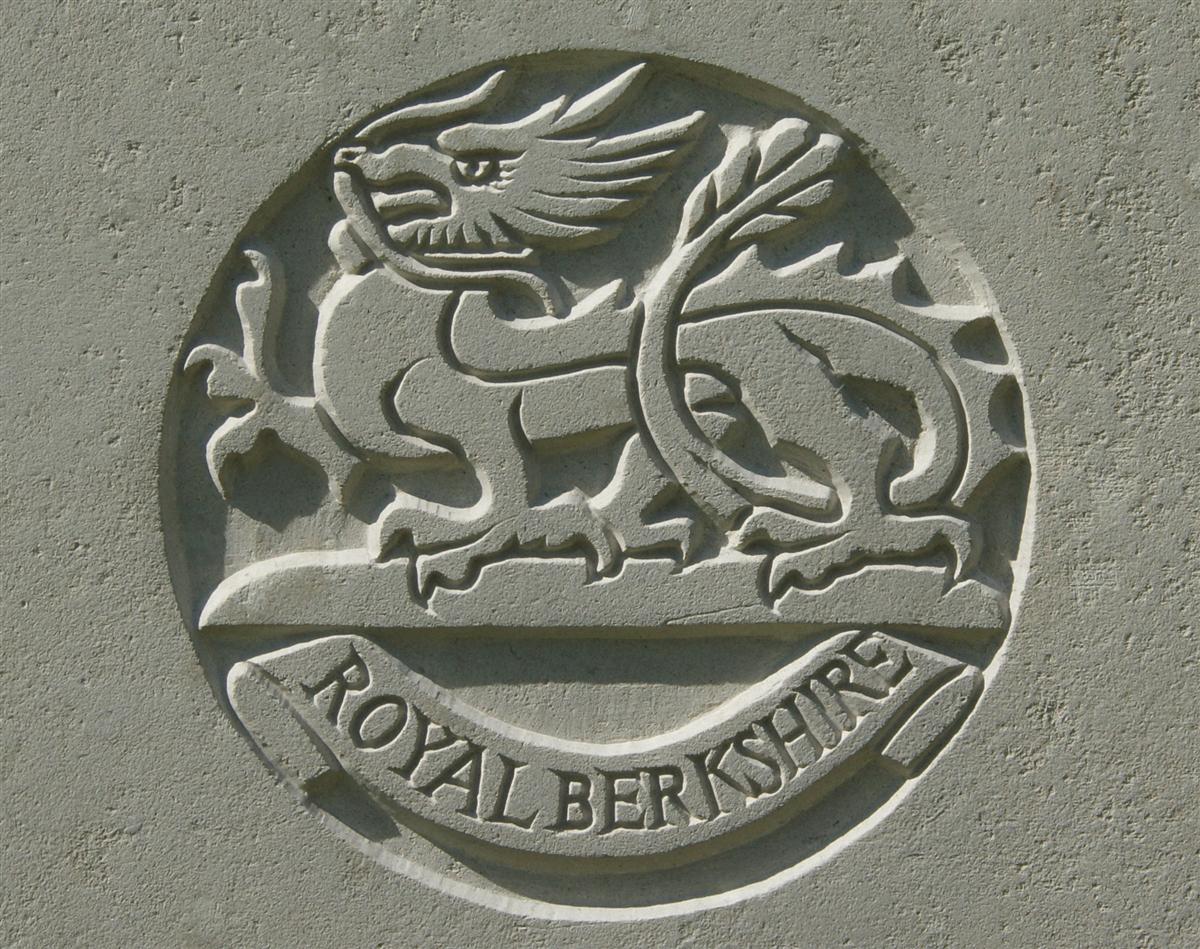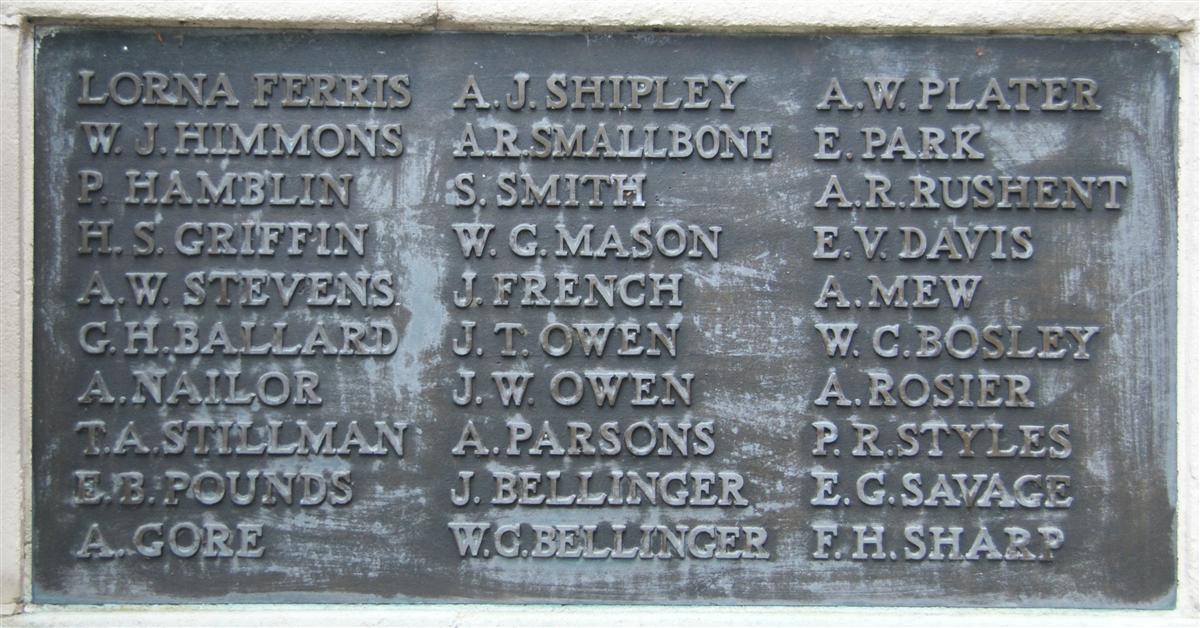Albert William Plater
Private 19281 Albert William Plater, 1st Battalion, Royal Berkshire Regiment.

Donnington Hayes, home of Albert's employer, F Queckett Louch. Now a BUPA care home. |
Albert was born in Reading in 1877 and is believed to be the son of William Plater, a brickmaker from Speen. However, his parentage is unclear. What is clear is that in 1901 he was living in Speen with his grandmother, Jane Plater, and was working as a train conductor, possibly on the Newbury to Lambourn line.
A few years after this Albert began to work for local solicitor F Quekett-Louch as a gardener at his home, Donnington Hayes. The small village of Donnington a mile north of Newbury had a number of large houses that were popular residences for the more successful local businessmen. Donnington Hayes is now The Donnington Care Home.

11 Jubilee Road, known as 1 Clifton Cottages when Albert and Alice moved in. |
The months following the outbreak of war in August 1914 saw over a million young men volunteer to serve their king and country. Albert was not among them; aged 37 and with a young family to support no one would blame him for staying at home. However, by mid-1915 it was apparent that the war was not going to end soon and the flood of volunteers had slowed to a trickle. Strangely the reports of the heavy losses in the battles of 1915, at 2nd Ypres, Neuve Chapelle, Festubert, Aubers Ridge and, in September, Loos inspired a number of men to decide that they couldn’t stand by and let others make all the sacrifices for the cause.

The regimental badge of the Berkshire Regiment, as used on CWGC headstones. |
The start of March 1916 found the battalion in the front line, manning trenches near Souchez where it spent six days after taking over from the French 77th Regiment. Weather conditions were dire (sodden after a thaw) and the trenches poor to non-existent. Several of the battalion’s positions were cut off or isolated in daylight because of a lack of communication trenches. However, the first priority was to improve the ‘sanitary arrangements’ - described as non-existent when the battalion took over the position.
After five days in the line it was time for the battalion to be relieved - a process that did not impress the battalion diarist:
War Diary, 1st Battalion Royal Berkshire Regiment - 5 March 1916
Souchez & Bois de Noulette Relieved by 22nd R Fusiliers. One of the slowest reliefs experienced their 1st coy entered the reserve trench at 8.15 but relief was not finally complete until 1h45. On relief 3 coys marched to billets in hutments in the Bois de Noulette the other coy was detached and lay about a mile nearer the line than the remainder of the Bn. Billets were quite good. Casualties during tour 6.
Sadly Albert was one of the six casualties. As the men withdrew from the line an enemy shell exploded near him resulting in he and a pal (Pte Herbert Skingley) being buried alive as the trench collapsed over them. Skingley was rapidly uncovered by his mates, and helped dig Albert out. However, Albert had been seriously injured; he was taken to the Field Ambulance (not a vehicle but a forward hospital) at Aix-Noulette, but died before he reached it. Herbert Skingley wrote to Albert’s parents telling them how their son died (see newspaper article below).
His parents placed a notice in the local paper:
Newbury Weekly News, 16 March 1916 - Killed in Action
PLATER - March 5, in France, Pte A Plater, 19,281, 1st Royal Berks Regt, formerly of Donnington.
Much greater detail was given in the news columns:
Newbury Weekly News, 16 March 1916 - Local War Notes
On Thursday last the sad news was received by Mrs A Plater of 1, Clifton-cottages, Jubilee Rd, Newbury, that her husband, Pte A Plater, 1st Royal Berks Regiment, had died as a result of injuries received in action. Although no official notification has been received from the war office, there appears little doubt as to the correctiveness of the bad tidings, for with the letter conveying the news, written by a chum, Mrs Plater was returned a post-card, which she had sent to her husband, with the words ”deceased” written across it. The letter, dated March 6th, conveying the news, was from Pte H Skinley, of the 1st Royal Berks, as follows: “Madam – just a few lines to tell you I have been a great friend of your husband since he joined our regiment out here in France, and we have been very happy together. I am very sorry to tell you that we were going to be relieved in the trenches last (Sunday) night when a German shell blew our trench up and buried your husband and myself with sandbags. I was soon helped out, and then we got your husband free as soon as we could, but I am sorry to say he was hurt very much; but he was sensible and asked if I was there. At the same time I was holding his head up, and he said, “Let my wife know I am hurt.” This morning I have heard the news that he passed away on the way to hospital. I am very sorry indeed for the sad bereavement it has brought to you and your family.”
Much sympathy goes out to the young widow and two children in loss of husband and father, who had only been on service about five months, joining on the 8th October, 1915. Prior to joining the army he had worked for nine years as gardener to Mr F Quekett Louch, Donnington Hayes, and was 38 years of age. He had only six days leave since joining the colours, and had made an efficient soldier, as evidence to the fact that he had been sent out after such a brief training. Mrs Plater is a daughter of Mr Maslin, gardener to Mr W Walton, of Donnington Holt, so that both the husband and bereaved wife were well known in Donnington, and Mrs Plater has received many messages of sympathy, including one from Mr Louch.

Albert's name on Newbury War Memorial (top right) |
Albert was buried in grave 11.H.23 at Aix-Noulette Cemetery Extension.
Albert is remembered locally on Tablet 1 of the Newbury Town War Memorial and Shaw cum Donnington War Memorial (as H W Plater). He was also commemorated in the east window of the Primitive Methodist Church in Bartholomew Street, Newbury (now demolished).
Two years after Albert’s death his widow, Alice, remarried to Robert Gill Wyllie, himself a widower with adult children. Wyllie was considerably older than Alice, but offered a secure future for her and her children. He was a doctor, with a practice at 92 Northbrook Street. He too lost someone in the war, his son Lance Corporal Arthur George Wyllie, who died in a military hospital in Rouen, France, on 23 June 1917 while serving with the 3rd Battalion, Royal Worcestershire Regiment.
When Wyllie died on 12 May 1943 he left his estate in the care of Alice as executor of his will (effects valued at £278 18s 6d). Alice died on 21 May 1960; she appointed her son, William Bernard Plater, as executor of her will (£308 10s 4d).

Find a memorial :
| Died this day: | |
| 02 March 1943 | |
| Stanley Hunt | |
| Kintbury |

Like this site? Show your appreciation through a donation to a great charity.